Alex Garland’s Men appears to have provoked something of an unexpected reckoning.
The film follows Harper Marlowe (Jessie Buckley), as she escapes into the countryside following the suicide of her abusive and controlling husband James (Paapa Essiedu). When Harper wanders into the nearby forest, something follows her out. As the film unfolds, the audience realizes that all the men in the local village share the same face, all played by veteran British character actor Rory Kinnear. Harper very quickly finds herself under siege from a monster in many forms, with one face.
It seems fair to describe Men as a divisive film. At The A.V. Club, Jordan Hoffman praised it as “something of a deranged masterpiece.” At Vulture, Angelica Jade Bastién complained that the film was “blood and gristle and sinew without the skeleton to hold it up.” It earned a D+ grade from opening weekend audiences via CinemaScore, a sort of badge of honor for indie horror. This is the same score earned by Ari Aster’s Hereditary and just below the C- for Robert Eggers’ The Witch.
One of the more common criticisms of Men is that the film was too heavy-handed in its central metaphor, too lacking in subtlety in trying to make its point about men and women. It became the focal point for a number of articles decrying trends in contemporary horror, with critics arguing that the genre was increasingly foregrounding earnest socially relevant themes in a way that was clumsy and forced.
This is not a new debate in horror fandom. In some ways, it has been simmering for almost a decade, as critics argue about the term “elevated horror.” The term only really came into use over the past decade, and frequently to describe horror movies perceived as having loftier ambitions than the genre’s more mainstream fare. It is a very loose term, and the test seems to be similar to Justice Potter Stewart’s definition of pornography: One knows it when one sees it.
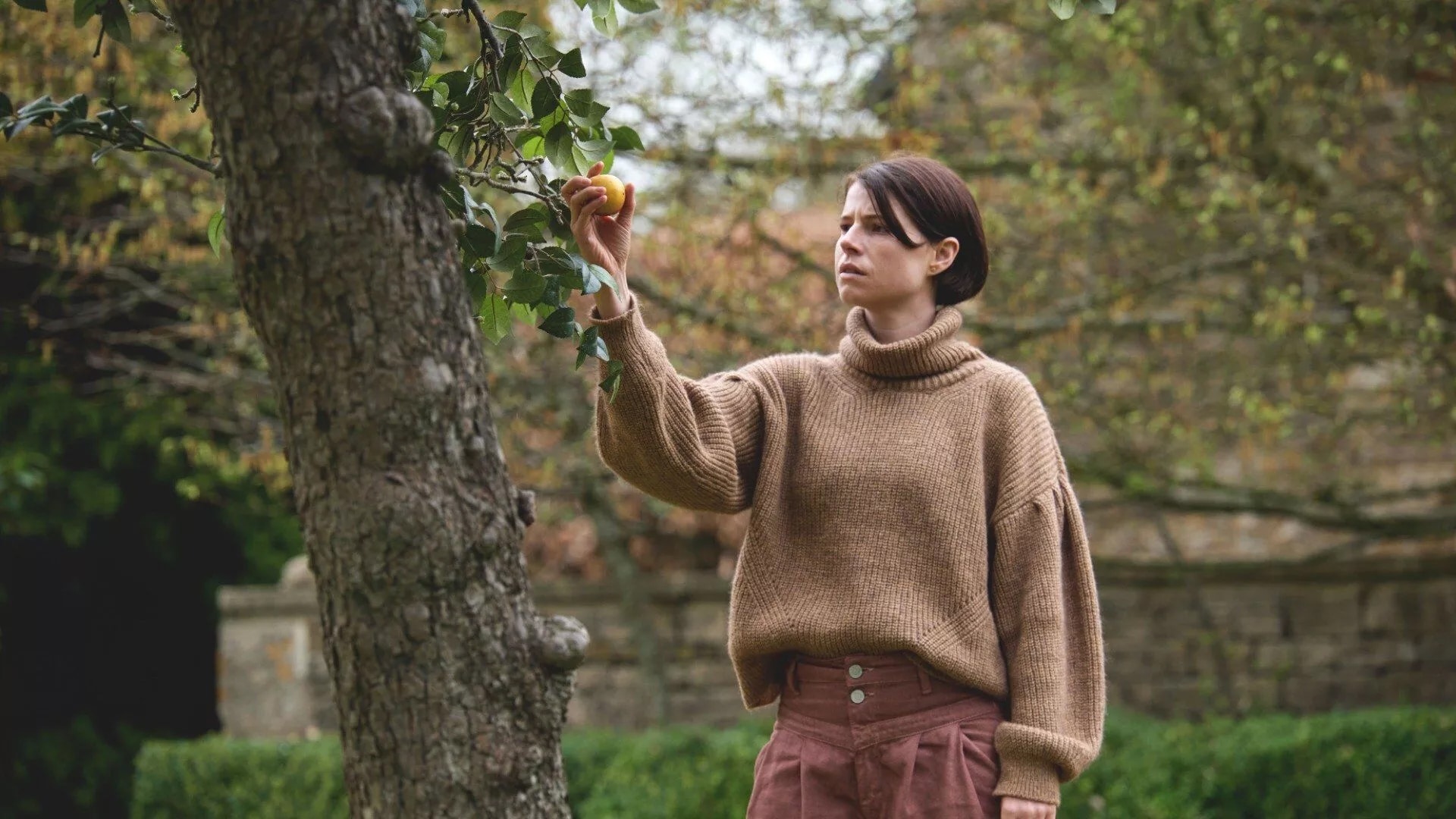
Directors like Eggers and Aster are often branded as connoisseurs of “elevated horror,” with films like The Witch and Midsommar. Studios like A24 and Focus Films are accused of peddling in it, with films like Lamb or The Little Stranger. It can also be more mainstream, so long as the film receives greater consideration than that traditionally afforded the genre. For example, Get Out was one of very few horror movies to earn a Best Picture nomination, and it has been cited as part of the trend.
It is worth acknowledging here that arthouse horror has always been an important part of the genre’s history, going back to early expressionist horrors like The Cabinet of Dr. Caligari, Nosferatu, and Waxworks. It is possible to draw an even more direct line from 1970s horrors like Nicolas Roeg’s Don’t Look Now or even Philip Kaufman’s Invasion of the Body Snatchers to the contemporary films of Aster, Eggers, and Garland. Nothing exists in a vacuum, and to pretend that it does erases history.
However, there has been a sense in discussions of modern horror that these movies have become too overt in their central metaphors, tackling big socially relevant themes. Naturally, racism is a major thread in contemporary American horror, with none-too-subtle allegories permeating films like Get Out, Us, Antebellum, Candyman, Master, and many more. This makes sense given the ongoing public debates about racism in contemporary culture and the panic around them.
There is a similar preoccupation with gender in contemporary horror cinema, reflecting the ongoing reckoning around #MeToo and the broader conversation about sexual violence. Sophia Takal’s Black Christmas remake was described as “a timely examination of the entrenched nature of misogyny,” Neil Jordan’s Greta was perhaps reductively summarized as “Get Out for white women,” and Get Out also served as a point of reference in discussions of Mimi Cave’s Fresh.
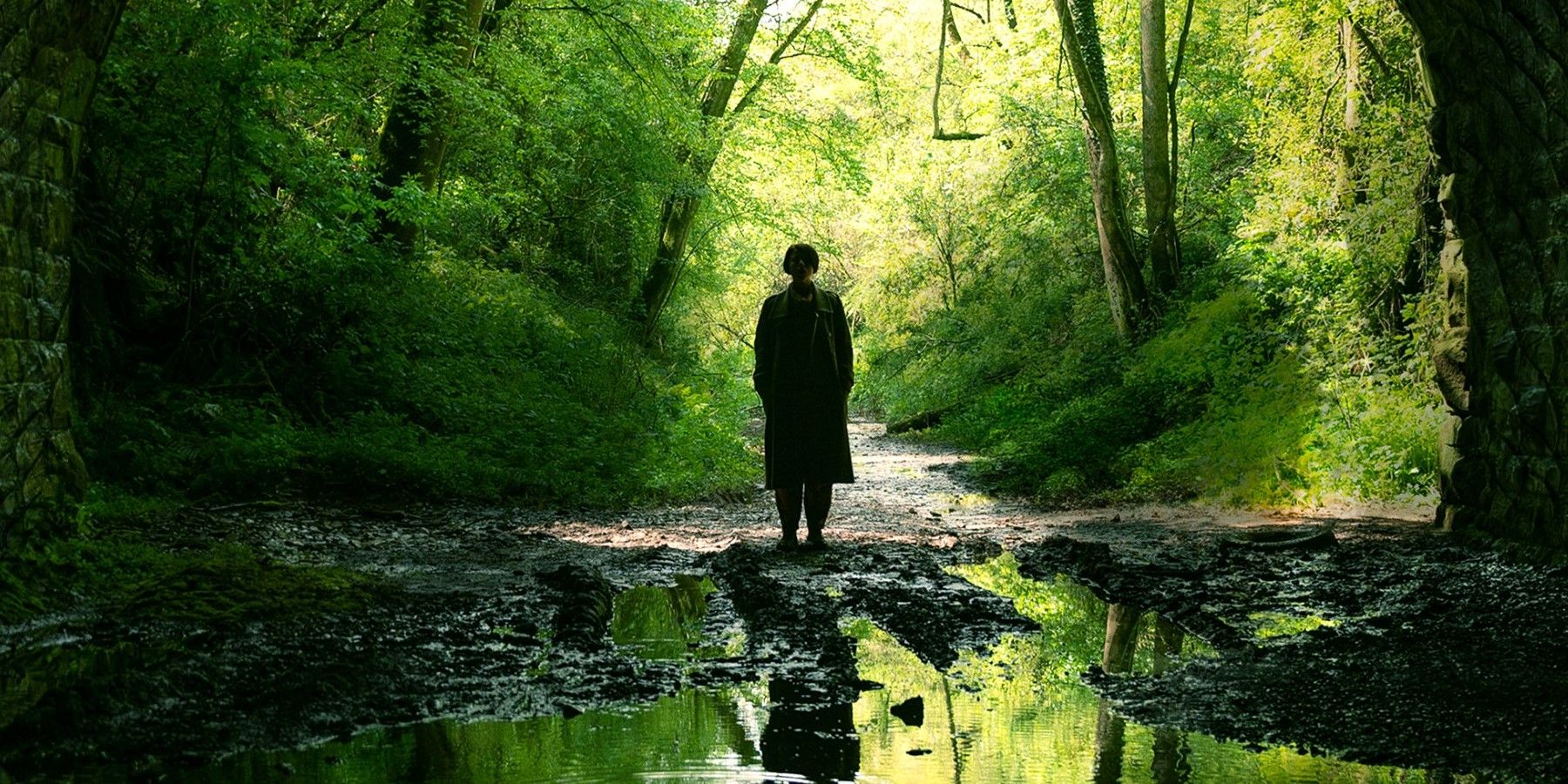
To be fair, the past year or so has seen a brewing backlash against these sorts of overtly allegorical horror movies. In September 2022, Horror Obsessive decried the use of such framing to imply that such films were “more sophisticated” than traditional slasher or creature features. In February 2022, North Texas Daily described “elevated horror” as “one of the most damaging things to happen to horror in a very long time.”
It seems like Men just lit a fuse, arriving at the right moment and with enough force to blow the whole debate wide open. After all, the film’s use of metaphor and allegory is so fundamental and essential to its storytelling, with the implication that all men may be the same man, that Chuck Bowen contended that it was best understood as “an unintentionally astute parody of the horror films that are often released by its distributor, A24.” Charles Bramesco christened it a “metaphorror.”
Men has become a catalyst for broader critiques of modern horror. “We are living in an age of metaphorical horror – of scary movies that strive, loudly and unsubtly, to be about something scarier than a sharp knife or sharp fangs, something real and important,” argued A.A. Dowd in The Guardian. Brianna Zigler described it as “another pseudo-intellectualized tackling of real-world social and psychological issues in the yearslong attempt to legitimize the perceived ‘low-brow’ horror genre.”
However, these arguments are unconvincing on a number of levels. Most obviously, Men is a movie that retains considerable ambiguity in precisely what it is saying. Many critics found themselves wrestling with the implications of the movie’s central concepts. David Ehrlich asked, “Will this movie inspire anything more than an endless litany of rhetorical questions and a Saturn Award nomination for Best Special Effects?”
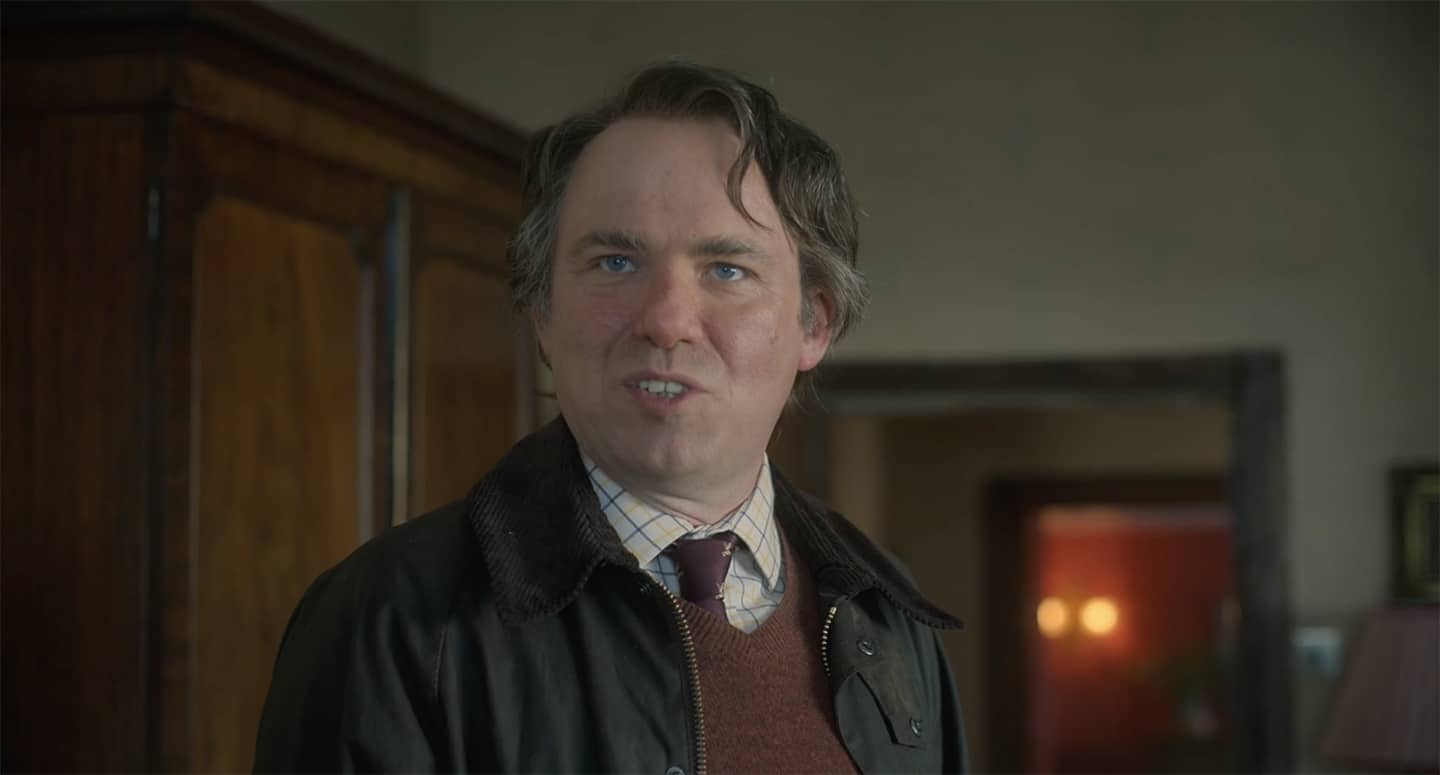
For example, the film never explains why all the men look the same. It also never explains whether Harper recognizes this. She doesn’t comment on it, but is that because she doesn’t see it or because she’s used to it? Peter Bradshaw noted in his review that this was a big question to leave unanswered. Viewers are entitled to ask, but the film offers no answer.
That ambiguity is intentional. “Is it that all these men are the same and she fails to notice that?” Alex Garland asked in an interview with The Atlantic. “Or is it that she sees all men as the same, even though they’re actually different? And those questions are incredibly similar in their wording, but they’ve got very different implications.” Garland has his own understanding of the film, but he is more interested in the different interpretations that viewers can take from it on their own terms.
Still, even allowing for the ambiguity in precisely what Men is saying and how it chooses to say it, it is overtly a film about misogyny and gender. This is not a surprise, as these are recurring fascinations for Garland going back to films like 28 Days Later and Ex Machina. However, there is nothing particularly new or unusual in a horror movie being aggressively and undeniably about something, to the point that it lacks any subtlety whatsoever.
”Decade by decade you can see how the horror film has been a way of responding to a number of broad, cultural anxieties,” argued Eric Freedman in the wake of 9/11. Going back to 1950s horror, it’s easy to see the atomic anxieties in films like Them! or the communist paranoia underpinning movies like Invasion of the Body Snatchers. Decades later, Alien literally rammed its metaphors for sexual assault down the audience’s throat, with the facehugger’s “homosexual oral rape.”
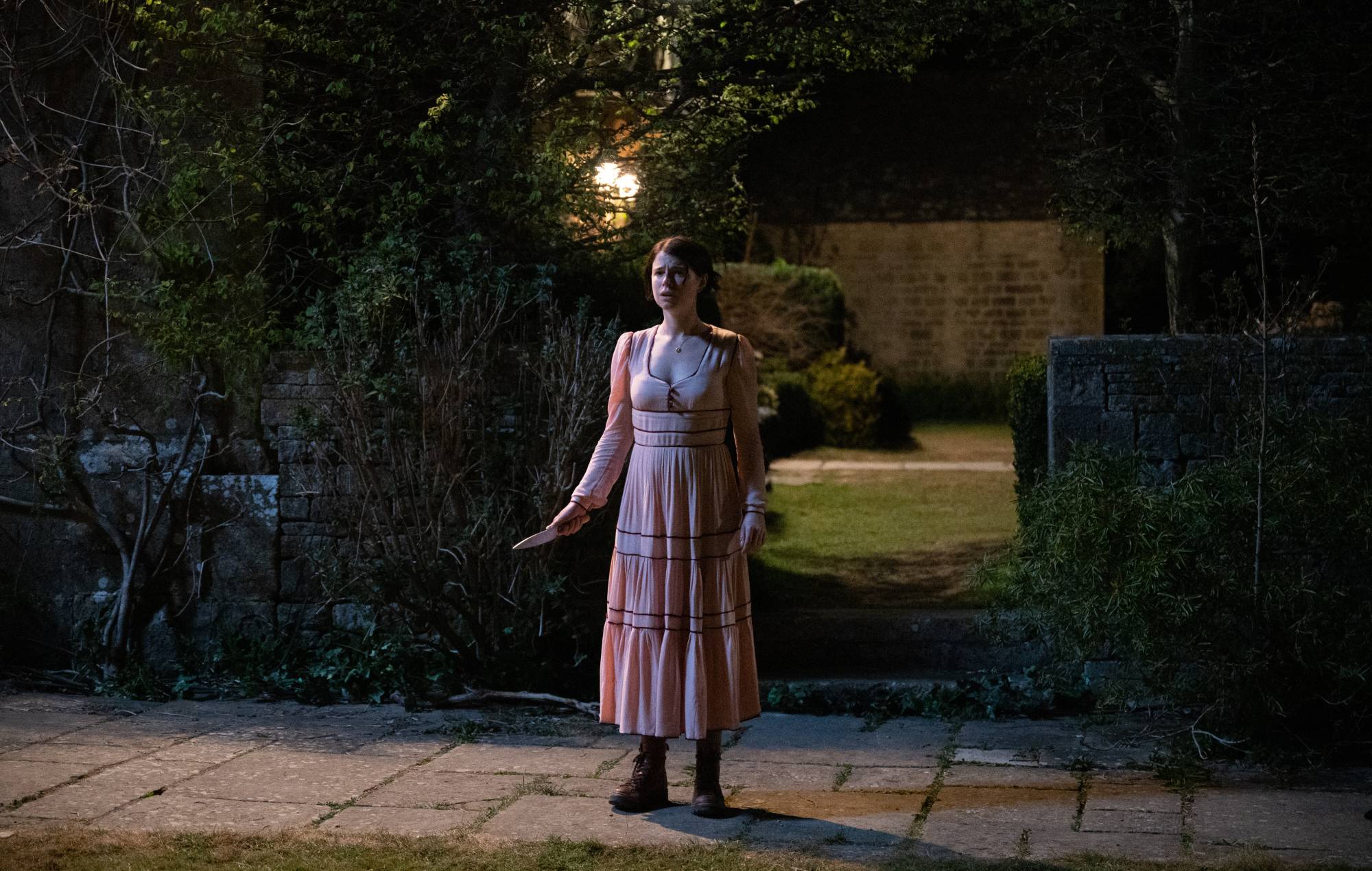
None of these trends were particularly subtle. Critics were quick to pick up on the “real point” that director John Carpenter was making with They Live, even if some complained that he was “trying to dig deep with a toy shovel.” Academics like Jeffrey Weinstock were quick to pick up on the none-too-subtle AIDS subtext underpinning the vampire movies of the 1980s and 1990s, like Francis Ford Coppola’s Bram Stoker’s Dracula or Neil Jordan’s Interview with a Vampire.
It should also go without saying that there are plenty of modern horror movies that are not really about anything in particular. James Wan’s Malignant is a gonzo delight, but it doesn’t seem like a horror movie that has anything particularly profound to say about the modern world. That’s just as reasonable an approach to take to making a horror movie as titling a film Men while offering an oblique exploration of misogyny entrenched in a meditation upon original sin.
In reality, modern horror movies are no more or no less subtle in interrogating contemporary fears than older entries in the genre. The most significant change is the culture around these films, as they arrive to a world that is eager to engage with them on the level of symbolism and metaphor. What might have been a throwaway clause in a New York Times or Washington Post review becomes six different features published simultaneously on different websites. While viewers once had to sit with a movie and discern meaning for themselves, such analysis now comes prepackaged through podcasts, think pieces, and explainer videos. To put it another way, horror hasn’t become less subtle; the conversation around it just became louder.
There’s no single “right way” to make a horror movie. The genre is diverse and exciting, encompassing a wide range of tones and viewpoints. There is room for slashers aiming to deliver visceral thrills on a scene-by-scene basis, and there’s room for more thoughtful and existential horrors about the human condition. There always has been, and there always will be.

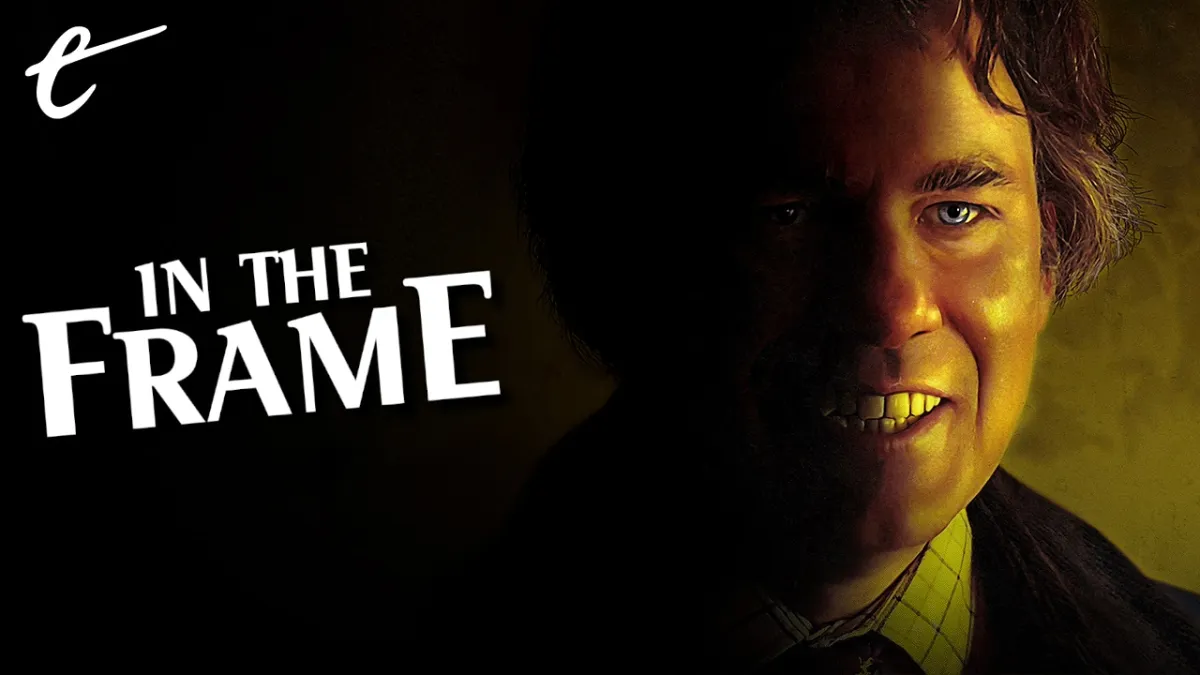




Published: Jun 3, 2022 11:00 am